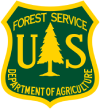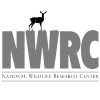Humane Wildlife Control in Dallas, TX
The Humane Wildlife Control Society recommends non-invasive solutions to resolve human-wildlife conflicts. This includes:
Determining if the issue needs to be addressed at all
Opting for preventative measures first
Opting for wildlife exclusion as opposed to trapping
If trapping is the only way to solve the problem do so humanely
The Humane Wildlife Control Society screens candidates prior to recommendation. Our process requires any company we recommend to meet the following criteria:
Is properly licensed in Texas for wildlife control
Carries appropriate business licenses and insurance
Complies with all Texas laws and regulations for wildlife control
Adheres to the humane principles listed above.
In Dallas, Texas we recommend Humane Wildlife Removal Dallas for professional wildlife control services. This is a private company that charges for their services.
Contact Information:
Wildlife X Team
214-504-3587
If you have any wildlife issues that can be handled by the state government agency for free, the Texas Wildlife Commission can help.
State Contact Information: 512-389-4800
The State Department of Agriculture may also be able to address your wildlife problem for no charge.
USDA Contact Information: 512-463-6477
Preventing Wildlife Intrusions in Dallas, Texas: A Comprehensive Homeowner’s Guide
As a homeowner in Dallas, Texas, it’s essential to take proactive measures to prevent wildlife intrusions. The city’s urban-wildland interface and mild climate make it an attractive habitat for various wildlife species. This guide provides you with a comprehensive and unique approach to securing your property and preventing wildlife intrusions.
Common Wildlife Intruders in Dallas, Texas
Dallas, Texas, is home to a diverse range of wildlife, including:
Raccoons: Known for their dexterous hands and curious nature, raccoons can easily open latches and garbage cans.
Opossums: North America’s only marsupial, opossums are common in Dallas and can carry diseases like leptospirosis.
Snakes: Various species of snakes, including venomous ones like copperheads and cottonmouths, inhabit the Dallas area.
Rodents: Mice, rats, and squirrels can squeeze through tiny openings and cause significant damage to your property.
Bats: While beneficial to the environment, bats can carry diseases like rabies and histoplasmosis.
Skunks: Known for their strong-smelling spray, skunks can be a nuisance to homeowners.
Prevention Measures
To prevent wildlife intrusions, follow these steps:
Secure Your Property
Inspect your home’s exterior: Look for any holes, gaps, or weaknesses in your home’s foundation, walls, and roof.
Seal all entry points: Use steel wool, caulk, or expanding foam to seal any openings, including vents, chimneys, and pipes.
Install door sweeps and weatherstripping: Seal gaps under doors and windows to prevent wildlife from entering.
Use hardware cloth: Install hardware cloth around gardens, crops, and other sensitive areas to prevent wildlife from accessing them.
Manage Attractants
Secure garbage cans: Use animal-proof trash cans or secure regular cans with bungee cords or weighted lids.
Remove pet food and bird seed: Store pet food and bird seed in secure containers to avoid attracting wildlife.
Keep your yard clean: Regularly clean up debris, leaves, and weeds, which can attract wildlife.
Avoid using bird feeders: Bird feeders can attract wildlife, especially during times of food scarcity.
Use Deterrents
Install motion-activated sprinklers: These can startle wildlife and deter them from entering your property.
Use ultrasonic repellent devices: These devices emit sounds undesirable to wildlife, helping to deter them.
Plant wildlife-deterring plants: Certain plants, such as lavender, mint, and chamomile, can help deter wildlife.
Use predator urine: Predator urine, such as coyote or fox urine, can be used to deter wildlife.
Install Wildlife-Proof Fencing
Use durable materials: Install fencing made from durable materials, such as wood, metal, or plastic.
Bury fencing: Bury fencing 12-18 inches underground to prevent wildlife from burrowing underneath.
Use fencing with small mesh sizes: Use fencing with small mesh sizes to prevent wildlife from passing through.
Additional Tips
Trim tree branches: Keep tree branches at least 10 feet away from your home to prevent wildlife from jumping onto your roof.
Install chimney caps: Prevent wildlife from entering your chimney by installing a chimney cap.
Consider professional assistance: If you’re dealing with a persistent wildlife issue, consider hiring a professional wildlife control service.
Keep your home clean: Regularly clean your home, including attics, basements, and crawlspaces, to prevent wildlife from inhabiting these areas.
Local Resources
Texas Parks and Wildlife Department: Contact the department for guidance on wildlife management and control.
Dallas Animal Services: Reach out to Dallas Animal Services for assistance with animal control and wildlife removal.
Local wildlife control services: Hire a professional wildlife control service to humanely remove wildlife from your property.
Dallas Wildlife Commission: Contact the Dallas Wildlife Commission for information on local wildlife management initiatives and regulations.







